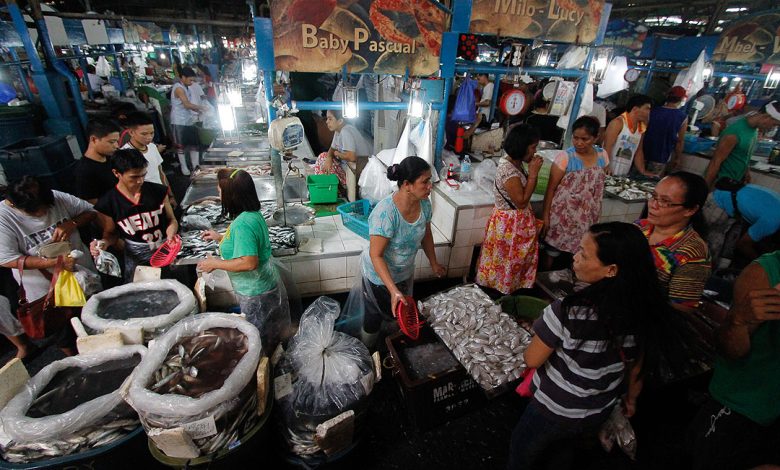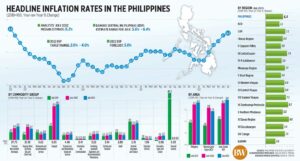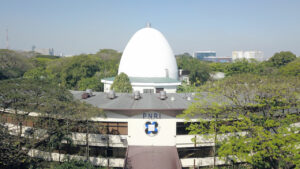Inflation slows to three-month low

Inflation eased to a three-month low in October amid a slower increase in food prices, the Philippine Statistics Authority reported on Friday.
Headline inflation settled at 4.6%, slower than the 4.9% median estimate of 21 analysts in a BusinessWorld poll last week.
“The Bangko Sentral ng Pilipinas (BSP) stands ready to maintain its accommodative monetary stance for as long as necessary to support the economy’s sustained recovery to the extent that the inflation outlook would allow,” Governor Benjamin E. Diokno told reporters in a Viber group message.
The central bank would assess price developments before the Nov. 18 policy meeting of the Monetary Board, he added.
He also said the P1-billion fuel subsidy grant to vehicle operators should help support the transport sector and help prevent second-round effects amid rising oil prices.
The October figure was slower than 4.8% in September, though faster than 2.5% a year earlier. This brought the 10-month inflation to 4.5%, faster than the 4.4% forecast by the Philippine central bank for the year.
This was the third straight month inflation exceeded the 2-4% target of the Bangko Sentral ng Pilipinas for the year. Inflation has topped the BSP target this year except in July.
Easing inflation in October was mainly due to the slower increase in the prices of food and nonalcoholic beverages, which rose by 5.3% compared with 6.2% in September. The price increases for meat, vegetables and fish eased last month.
Other items that caused inflation to slow were alcoholic beverages and tobacco (9.8% from 10.5%), education (0.7% from 0.9%) and restaurant and miscellaneous goods and services (3.7% from 3.9%).
On the other hand, prices of major commodities picked up including transport (7.1% from 5.2%); housing, water, electricity, gas and other fuels (4.4% from 3.8%); furnishing, household equipment (2.5% from 2.4%); health (3.2% from 3.1%); and recreation (1% from 0.9%).
Core inflation, which excludes items with volatile price movements such as food and energy, quickened to 3.4% from 3.3% in September. Inflation for the bottom 30% income households also eased to 4.8% last month from 5% in September.
The government would continue to implement policies to ensure affordable food prices and support the transport sector, the National Economic and Development Authority said in a statement.
“Many countries, particularly net oil importers such as the Philippines, are feeling the impact of the rising world oil prices,” Socioeconomic Planning Secretary Karl Kendrick T. Chua said. “We will continue monitoring the global developments so we can urgently respond to the impact of elevated oil prices on ordinary Filipinos, especially our public utility vehicle drivers.”
Despite the easing last month, inflation might remain high in the next months due to rising oil prices, Bank of the Philippine Islands Lead Economist Emilio S. Neri, Jr. said.
“Oil is expected to stay elevated in the coming months as supply will likely remain tight especially during winter,” he said in an e-mailed note. “Major oil-producing countries have kept their production plans despite the improvement in demand.”
ANZ Research Chief Economist Sanjay Mathur and economist Debalika Sarkar said they were “a little concerned with the sequential rise in inflation, which seems excessive at this stage of the business cycle”
But the slowing inflation was in line with the central bank’s guidance and accommodative stance as it stressed that rising prices were temporary, they said.
“A second month of deceleration in annual food and nonalcoholic beverage prices indicates that transitory influences are fading and over the next few months, push inflation lower into the official target range of 2-4% by end-2021,” according to the ANZ report.




